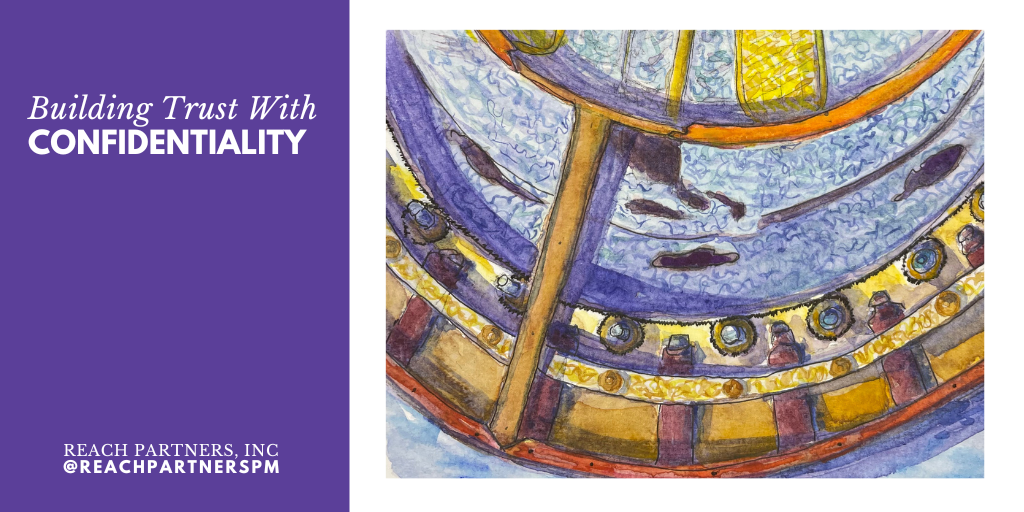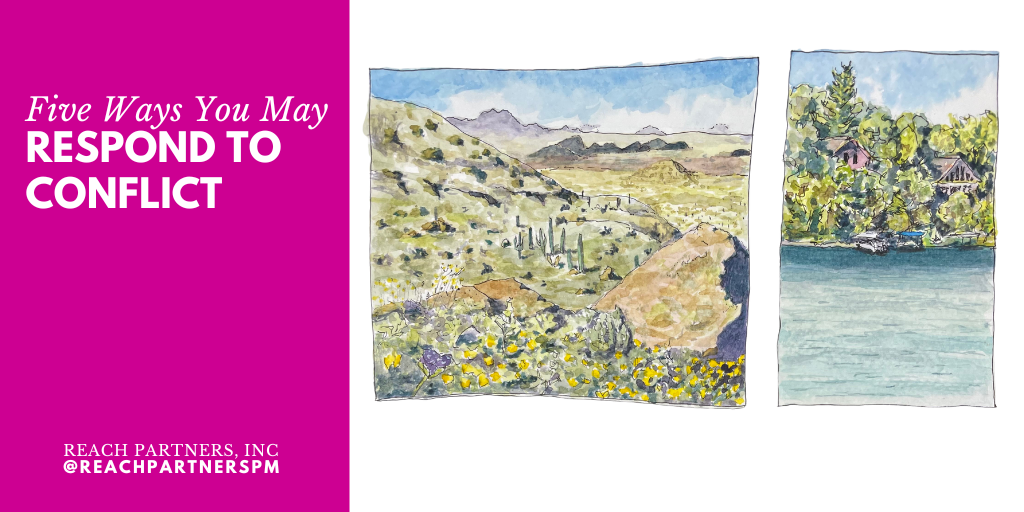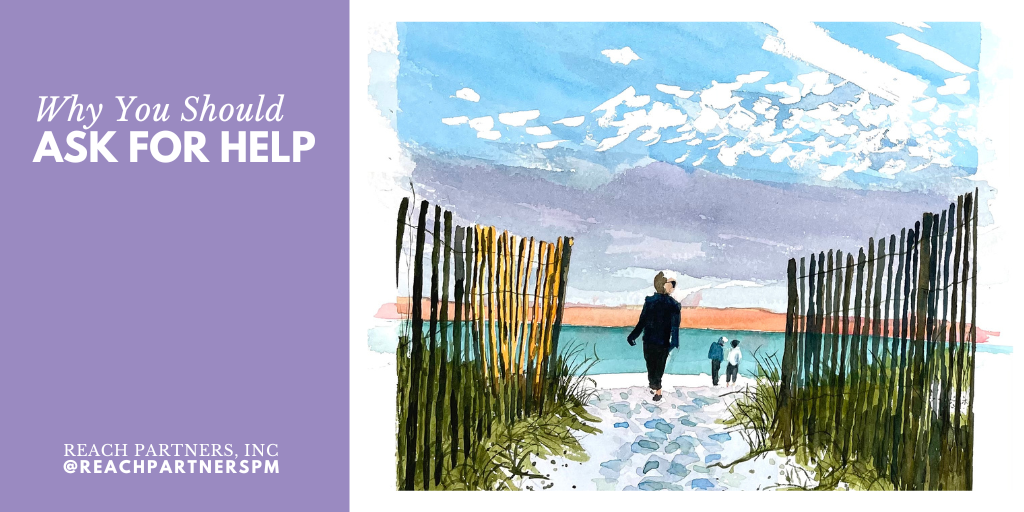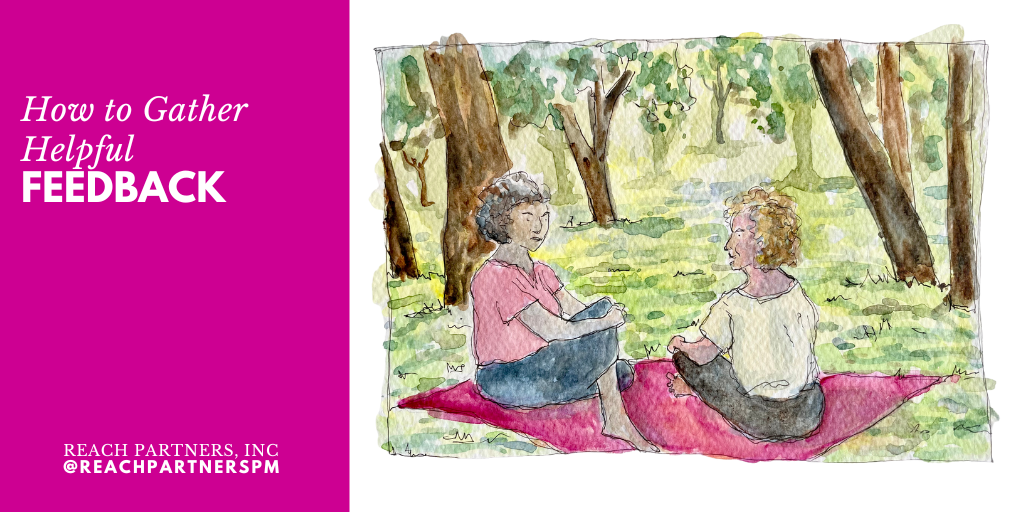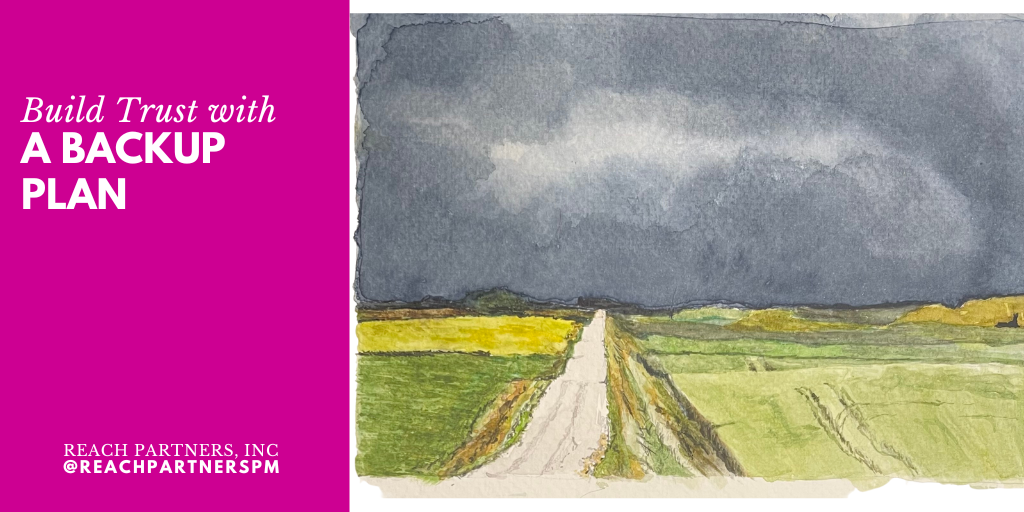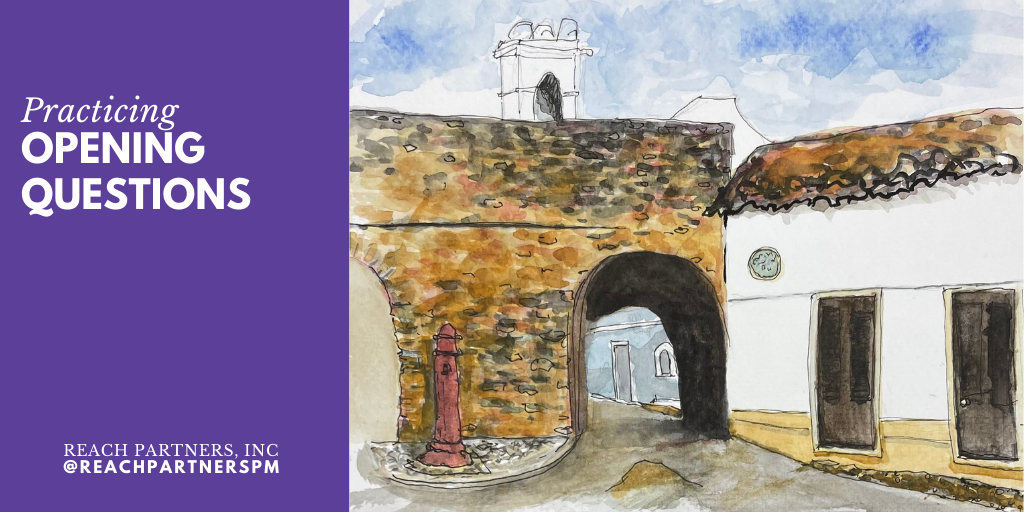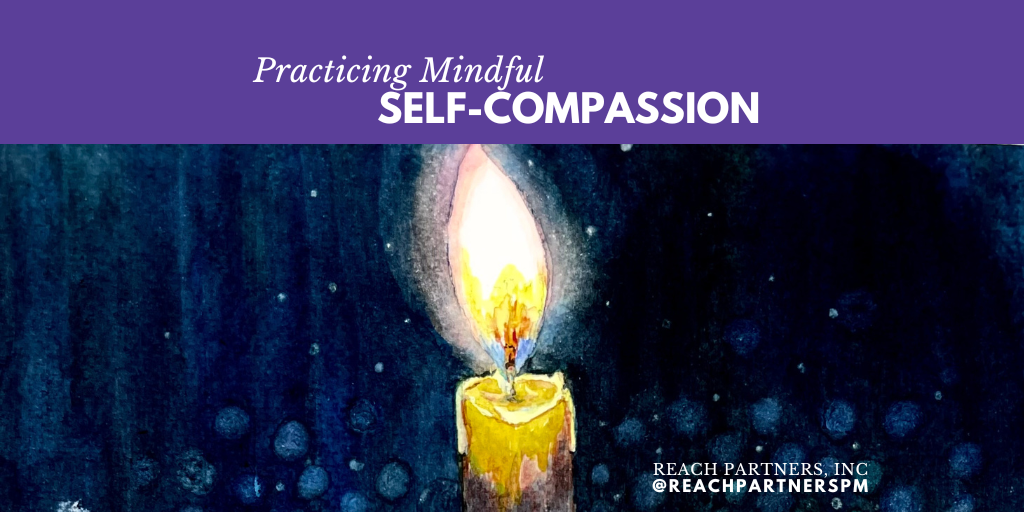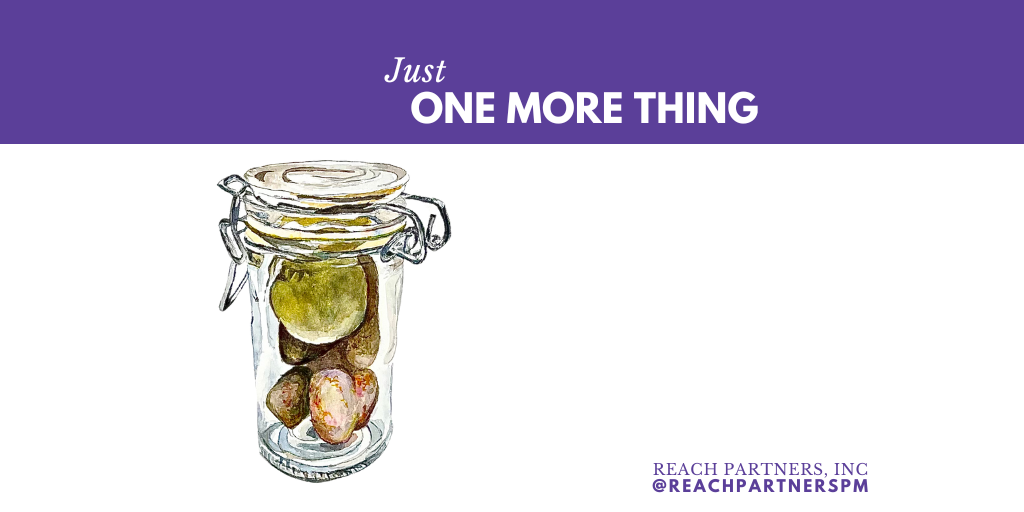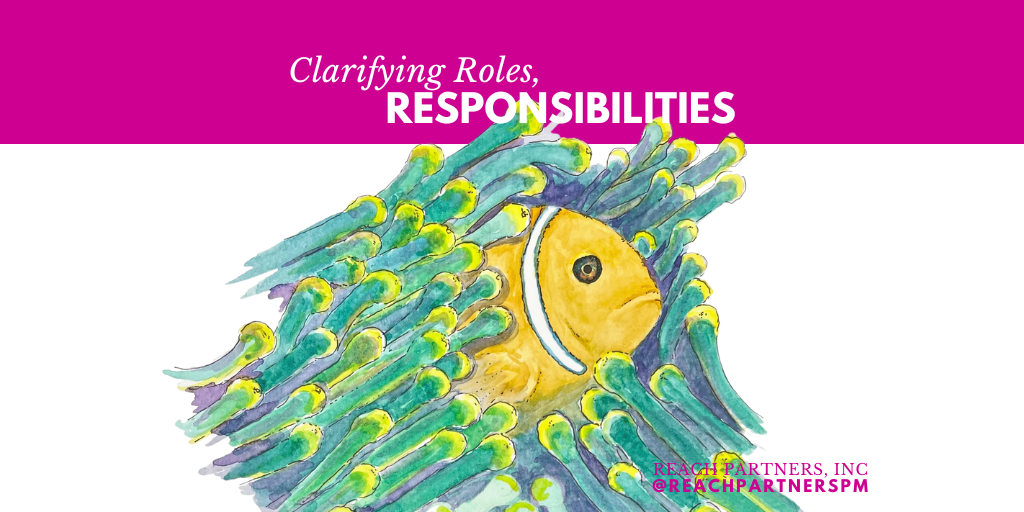|
I started running just before I turned 30. After realizing I had never completed a consecutive mile, I wanted to see if I could reduce the amount I sweat (my cooling system is a slick thing to be admired) and transform into a long-legged, running gazelle (nope).
Still, what I have discovered after years of trotting is there are similarities between running a race (like a half marathon, 13.1 miles) and the project management work I do at Reach Partners (everyday, baby). For both, success starts by committing to do what I say I’ll do.
2 Comments
We recently decided to update our client testimonials and debated whether omitting a client name made the testimonial useful. The discussion was particularly valuable because it led to a deeper dialogue about the link between confidentiality and trust.
Trust is the basis of all successful relationships. Among the various elements that foster trust, confidentiality stands out as a crucial component, especially when partnered with integrity. Our commitment to respecting client confidentiality isn't just a box we check off — it's the cornerstone of how we build and maintain strong relationships. How do you typically respond to conflict?
This may not be a question we are comfortable answering, but understanding the primary way you respond to conflict can help you become more aware of your tendencies. It also can help you make better choices when you don’t agree with someone. Whether it's a disagreement with a colleague at work, a misunderstanding with a friend, or a difference of opinion within family, conflicts are a natural and inevitable part of human interaction. How we handle them significantly impacts our relationships and overall well-being. Asking for help is hard. Or, at least for many of us that’s true.
When we hesitate to ask for support, however, we unnecessarily suffer through difficult situations at work, at home, or even in a relationship. The reasons we avoid asking for help vary. Maybe we don’t know how to ask. Maybe we are too proud or scared to show vulnerability in our Midwestern culture. Perhaps we carry generational baggage that tells us we are not worthy of needing assistance. Whatever the barriers are, we need learn how to rise above them. Leaders who ask for help are the kind of people with whom Reach Partners thrives. They are humble and know their limitations. Leaders who ask for help tend to value expertise that others bring. To get better at asking for help, we encourage you to think about the obstacles and why it’s worth overcoming them. I was once invited to give feedback on an activity my child participated in. I’m confident the leaders had good intentions – after all, they asked parents to fill out a survey. But, I didn’t feel fulfilled after answering the questions. I didn’t understand why my input was needed. Was I helping to make the activity better for the next year? Was I understood?
You’ve likely found yourself in a similar situation. The experience prompted me to think deeper about why we need feedback and the best way to gather it. After completing a post activity report (PAR) for a recent project, Anita and I discussed the wisdom of having a backup plan.
Yes, we complete a PAR for every project, which we talk about more here. But this post is really about dealing with yet another winter storm this long winter, and the plan we created to mitigate the risk of weather. Creating a backup plan extends our strategic approach for achieving our client’s goal, which is our most important goal. We have found one of the best ways to start a meeting is with an opening question.
The simple act of asking a question at the beginning of a meeting builds a stronger, more effective team. It’s a great way to ensure that people who need to work together get to know each other better. Here’s how: It’s hard to take time for yourself when the calendar is full, but I’m learning that might be the perfect time to do so.
Recently, Rachel and I took an online course on self-compassion from experts Kristin Neff – if you’ve ever heard anyone referencing self-compassion, it was likely her! – and Chris Germer. They have been working together since 2010. We didn’t have an extra 12 hours in our schedule, but making time for that course was worth it. We want to be the best human beings and project managers that we can be. We accomplish this by learning, growing, and expanding our thinking. ’Tis the season for one more thing – one more cookie, one more gathering, one more decoration, gift, or craft.
It’s tough being human. We have a lot of wants to manage in a mere 24 hours. In a season of lots of wants, we get to navigate our priorities to help us make decisions. How do we do it? In late October, the Project Management Institute asked its Twitter followers to scare a project manager in five words or less.
The answers were creative and relatable, but one stuck out: Don’t define roles and responsibilities. Yikes! That would certainly scare me. Clarifying roles and responsibilities for people is necessary to achieve project success. I don’t want to work with a team or group that thinks this level of detail isn’t required. Taking the time to define this is critical, yet we repeatedly run into situations where people don’t recognize the importance of this step or don’t know how to do it. |
Reach PartnersYour partners in leadership. Categories
All
Archives
July 2024
|
|
|
Reach Partners, Inc
3330 Fiechtner Dr. Suite 100 Fargo, ND 58103-2321 701-271-8170 Copyright (C) 2024 Reach Partners Inc.
|


